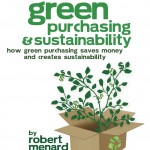Is the Can or the Bottle the Most Sustainable Way to Drink Beer?
Some sustainability debates are downright political, some are mystifyingly technical, and some are just plain fun. The Dallas Morning News (DMN) published a story entitled “Is the can or a bottle the greenest way to drink?” For sustainability pros, the debate is not as whimsical as most others would think. Yet for all of us, it is enough of an “attention getter” that it deserves at least a few minutes of our time.
The DMN story featured all things beer scheduled for November 12-18 in downtown Dallas. In an ironic twist, the Dallas Beer Week was cancelled for lack of interest. Leaving aside for the moment how that could ever have happened, the story concentrates on whether the can or the bottle is the “greener” alternative.
The conclusion was that the can was greener
The DMN cites this reasoning. “New glass bottles are made mostly from silica sand, an easily mined resource. New cans come from bauxite – much of it shipped from distant shores- that is turned into aluminum in an energy-intensive and polluting process.”
These few sentences in italics illustrate the problem with casual and uninformed observers of the sustainability landscape. The story goes on to insist that a higher percentage of aluminum cans get recycled and suggests that this is a favorable factor. This is a problem for sustainability pros for several reasons. First, what does the “percentage” mean, weight, volume, or number of containers? If containers, what size? As is much of the sustainability debate, the specifics are hard to come by.
The DMN story makes the unassailable point that the heavier container or tare weight of the glass bottles causes more fuel expense and associated Green House Gasses (GHG) per net weight of delivered beer product. However, there is no consideration given to the energy consumption involved in the glass and aluminum recycling processes. Wouldn’t that be a major factor in your calculation? Well, it was not in the DMN author’s perspective but therein lies the problem for sustainability, and particularly green purchasing pros.
If this is not enough taste for your palette, consider the physiological and gastronomical issues. Yes, these too relate to the sustainability argument. The DMN story intimates that the amber bottles of beer are not as light resistant as aluminum cans. However, since beer is perishable after production, the inference that cans are better than bottles for shelf life is questionable at best. If the brew goes down the drain and the container is recycled (or not), what is the sustainability gain?
What do you think?

